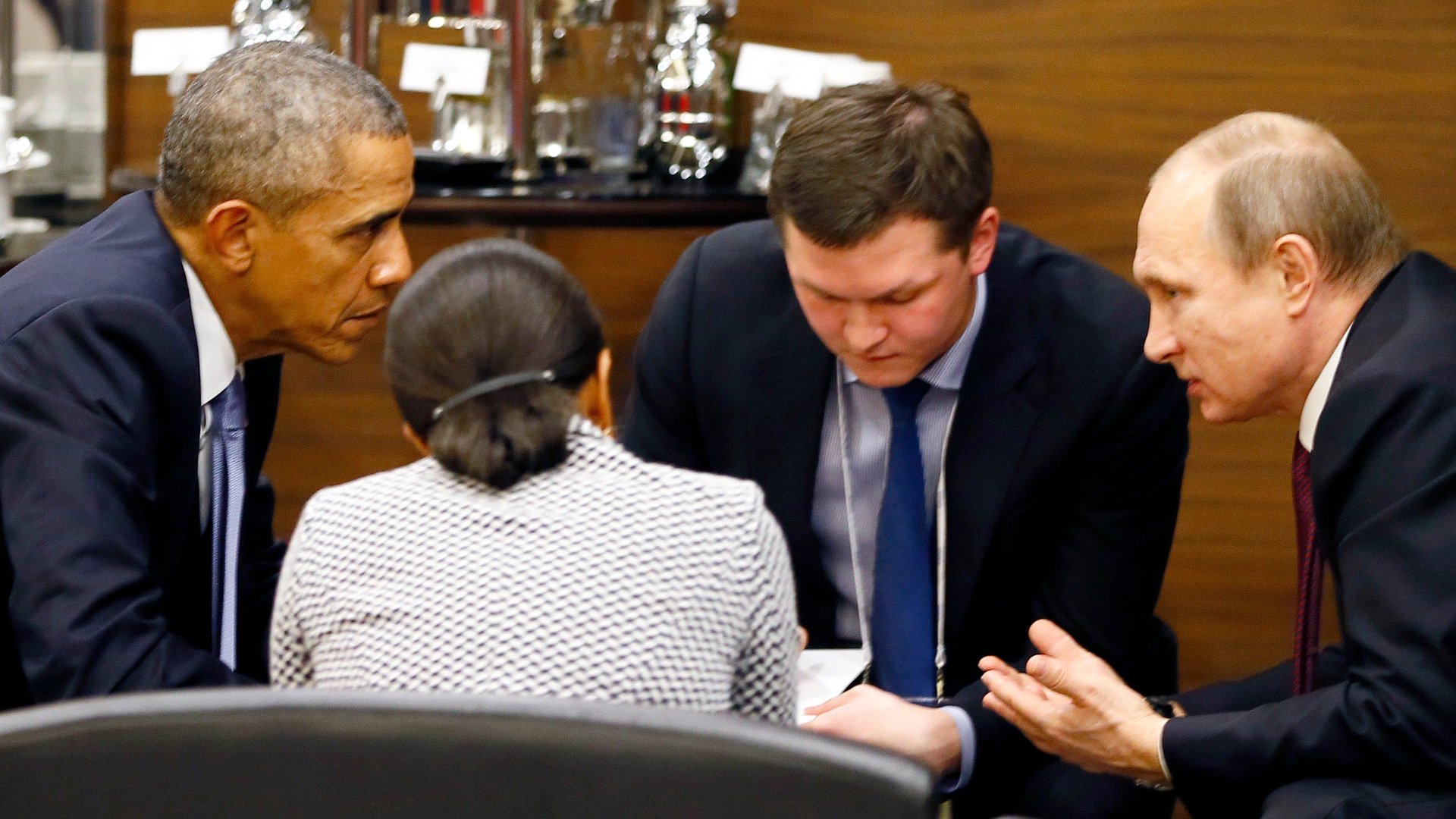The Paris attacks changed the most crucial relationship in the Russian economy
It hasn’t been a week since the terror attacks in Paris, but markets already indicate that the geopolitical game has changed.


It hasn’t been a week since the terror attacks in Paris, but markets already indicate that the geopolitical game has changed.
Since the price of oil began its precipitous plunge last year, all countries that depend on oil production for revenue have been feeling the squeeze, perhaps none more so than Russia.
The value of its currency, the ruble, has fallen in tandem with oil, and is worth 80% less today than it was in mid-2014. Traders saw Russia without other options for an economic boost thanks to sanctions that Europe and the US put in place after Russian troops invaded Crimea and backed separatist rebels in Ukraine.
But this week, the price of oil and the strength of the ruble started to decouple, with the ruble rising 2% against the dollar as oil continued to sink:
The assumption behind the trade is that, following the attacks, the US and Europe will be forced to work more closely with Vladimir Putin’s Russia to combat ISIL in the Middle East. That could entail loosening sanctions and restoring trading relationships that could boost Russia’s economy despite its deep dependence on black gold.
Scenes of Putin huddling with US president Barack Obama on the sidelines of last weekend’s G-20 meeting and news of a potential compromise on a transition government for Syria underscore that thesis.
Still, such accord may not last, and it will take a massive shift in the Russian economy—or a rebound in oil prices—to truly restore Russia’s economic engine. The ruble isn’t likely to escape its oil slick anytime soon.